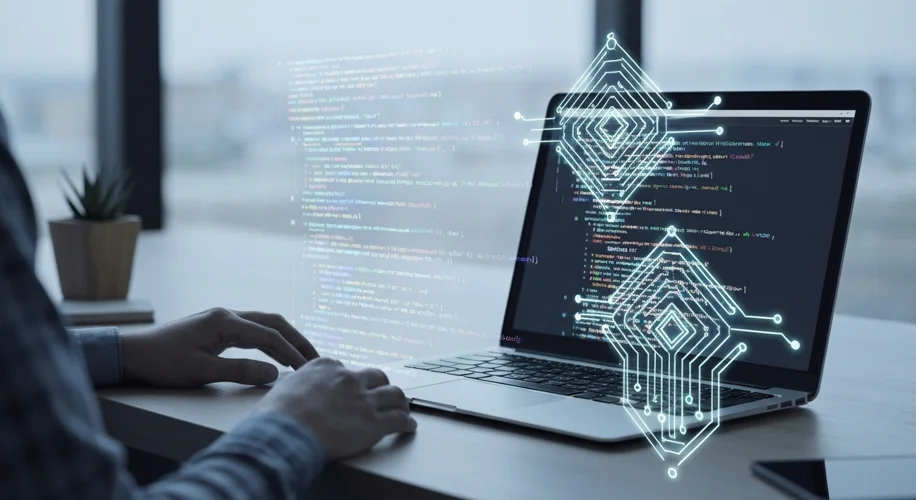Alright, so let’s dive into something that’s been buzzing in the tech world: who actually owns the code when AI helps you build it? I recently went through this myself. I needed a specific app for a personal project, and instead of coding it all from scratch, I decided to bring an AI coding assistant onto the team. It was… an experience.
Think of it like this: I had an idea, a blueprint, and the AI was my super-fast, incredibly knowledgeable (but sometimes a bit quirky) junior developer. I’d give it prompts, break down the logic, and it would churn out lines of code. It was amazing how quickly it could generate functional snippets. I was essentially commissioning the AI, directing its creative output to build my app.
But this brings up a huge question: who holds the copyright on the final product? Current copyright law, at least in many places, is designed around human creativity. It protects original works of authorship. The big debate is whether AI-generated content, even if directed by a human, qualifies. Is the AI the author? Am I the author? Or is it something else entirely?
This is where we get into the idea of ‘hybrid works.’ My app isn’t purely my creation, nor is it purely the AI’s. It’s a collaboration, a blend. I provided the vision, the problem-solving, and the final edits. The AI provided the raw material, the building blocks. It’s like a painter using a sophisticated new brush that can create textures no human hand could manage – does the brushmaker own part of the painting?
As it stands, the US Copyright Office has generally stated that works with significant AI authorship are not registrable. They’re looking for human creativity to be the driving force. This means that while the AI might have written the code, my role in directing, refining, and compiling it is crucial. If I can show that my human input was substantial enough – that I wasn’t just pressing ‘generate’ and walking away – I might have a case for ownership.
There’s a lot of gray area here, and it’s evolving fast. Companies that develop these AI coding tools often have terms of service that dictate ownership, so it’s super important to read those. Some might grant you full ownership of the output, while others might retain certain rights. It’s like hiring a freelancer – you need a clear contract.
For my app, I treated the AI output as a powerful tool, but I still put in the hours to debug, integrate, and ensure it met my standards. I see myself as the architect and project manager, with the AI as an incredibly advanced subcontractor. The legal landscape is still catching up, but for now, a hands-on approach to guiding and refining AI-generated content seems to be the best way to assert your claim.
It’s a fascinating time to be building things. We’re figuring out the rules as we go, and it’s up to us, the creators and users, to understand these new dynamics. What are your thoughts on AI-generated content ownership?

